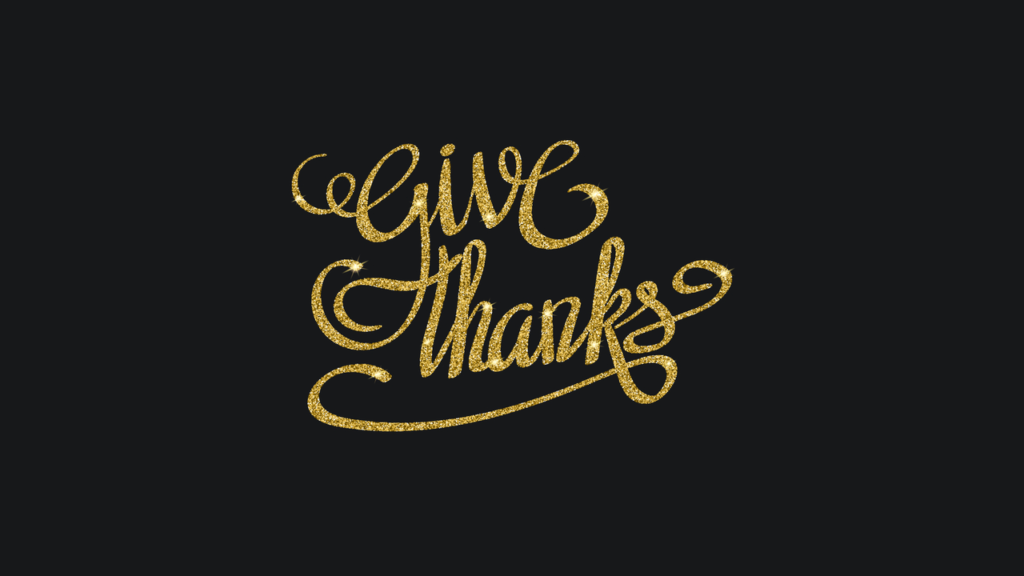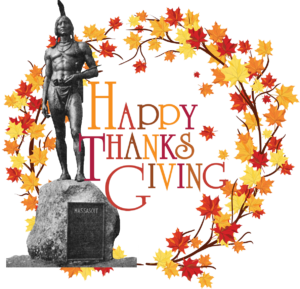Too often we discuss the origins of the Thanksgiving celebration rather than focus on its purpose. There are myriad reasons to be thankful and to develop a gratitude attitude. Author Joshua Becker writes, “Thankfulness absolutely matters.”[1] In fact, Becker believes thankfulness should become a lifelong discipline. He notes that there are times when being grateful is easy. We learn little from such moments. He also notes that there are times when being grateful can be difficult. It is during those moments when a gratitude attitude pays its greatest benefits. In other words, Becker notes, “When thankfulness is most needed, it is often the most distant.” He goes on to list a number of reasons that being thankful makes life better. They are:
• A thankful heart breeds contentment. It appreciates the many gifts of life itself.
• A thankful heart promotes optimism. Optimism leads to enthusiasm and determination.
• A thankful heart brings healthy attentiveness. It finds time to slow down and count blessings.
• A thankful heart shifts the focus of attention from ourselves to others. It understands that our lives have been enriched by them.
• A thankful heart is more likely to help others. It humbly realizes it has benefited from others and as a result, is more apt to notice needs.
• A thankful heart attracts generous people and faithful friends.
• Studies have found that gratitude results in better physical health and mental awareness.
• Gratitude heightens enjoyment of the good seasons of life. And provides strength to make it through the difficult ones.
Becker concludes, “We would fare better if we learned to consider gratitude a discipline of the heart — one that requires attention and consistent practice. Gratitude requires practice when it’s easy and even more practice when it’s difficult.” He is not the only person who believes that maintaining a gratitude attitude requires hard work and practice. Journalist Tish Harrison Warren writes, “Thanksgiving is my favorite holiday. It is a day that spotlights the need for gratitude. … The practice of gratitude is central to nearly every religious and spiritual tradition. And all of us have much to be grateful for. We get the shocking privilege of living on this planet that is uniquely made so that humans can be born, breathe, grow, work, harvest and create.”[2] Like Becker, Warren believes our gratitude muscles must receive constant exercise. She suggests several “practical ways to cultivate gratitude this Thanksgiving and throughout the year.” They are:
1. Keep lists. “Look back over a day or a week and write down as many things as you can think of that you receive as a gift — things that are as essential as breath or as frivolous as a good parking spot.”
2. Write notes of thanks. The best thank you notes, according to Warren, are those that are not required. “Take time to say thank you in writing to the friends and family who surround you. … Also, consider writing occasional thank-you notes to those who you may not know as well but on whom you rely every day: your mail carrier, bus driver or child’s teacher.”
3. Take a gratitude walk. “Take to the streets (by foot, bike or car) and give silent thanks for what is around you: your favorite coffee shop, a burst of red leaves in a tree, the local school, the crossing guards, a friendly neighbor, the quieting of city streets in the evening.”
Best-selling author Vanessa Van Edwards reports, “The research is clear: Gratitude is one of the simplest, most powerful ways to increase your life satisfaction.”[3] She adds, “You can learn how to be more grateful.” Like Becker and Warren, Edwards is convinced that a gratitude attitude can be learned, practiced, and strengthened. And, like Becker and Warren, she has her own way of exercising her gratitude muscles. In her case, it’s a gratitude totem. She explains:
“A totem is a symbol, reminder or representation that serves as an emblem. It helps to remind the user of an idea, memory or behavior. … In this case, gratitude. The best way to be more grateful is to pick a symbol that reminds you of how important gratitude is for your happiness. It is my hope that your totem will remind you of everything to be grateful in the moment. … First, pick an object, process or person you see often (preferably every day. … Whether it be fresh flowers on your desk, tying your shoes or seeing your sweet dog, whatever you pick will be your new gratitude totem. Second, whenever you see that object, person, or do that thing, you will stop and think about what you’re grateful for.”
Several things should be clear by now. First, there is no single way to practice being grateful. Second, finding a method to remind you about the things for which you are grateful can be helpful — both during good times and bad. Finally, you should be constantly grateful if you want to make your life better, fuller, and richer. Emeritus psychology professor and gratitude researcher, Robert Emmons, explains that there are two key components of practicing gratitude: First, affirm the good things you’ve received; and, second, acknowledge the role other people play in providing your lives with goodness. He suggests ten ways to accomplish those goals.[4] They are:
1. Keep a Gratitude Journal.
2. Remember the Bad.
3. Ask Yourself Three Questions. “What have I received from __?”, “What have I given to __?”, and “What troubles and difficulty have I caused?”
4. Learn Prayers of Gratitude.
5. Come to Your Senses.
6. Use Visual Reminders.
7. Make a Vow to Practice Gratitude.
8. Watch your Language.
9. Go Through the Motions.
10. Think Outside the Box.
As you can see, there are numerous overlapping ideas from the experts cited above. Select those that best fit your lifestyle and practice them. That way, thankfulness can become a part of your daily life and not just a topic discussed on Thanksgiving Day.
Footnotes
[1] Joshua Becker, “Learning to Consider Gratitude a Discipline,” Becoming Minimalist, November 2021.
[2] Tish Harrison Warren, “Five Ways to Exercise Your Thankfulness Muscles,” The New York Times, 21 November 2021.
[3] Vanessa Van Edwards, “Learn How to Be More Grateful with One Simple Trick,” Science of People.
[4] Robert Emmons, “10 Ways to Become More Grateful,” Greater Good Magazine, 17 November 2010.





